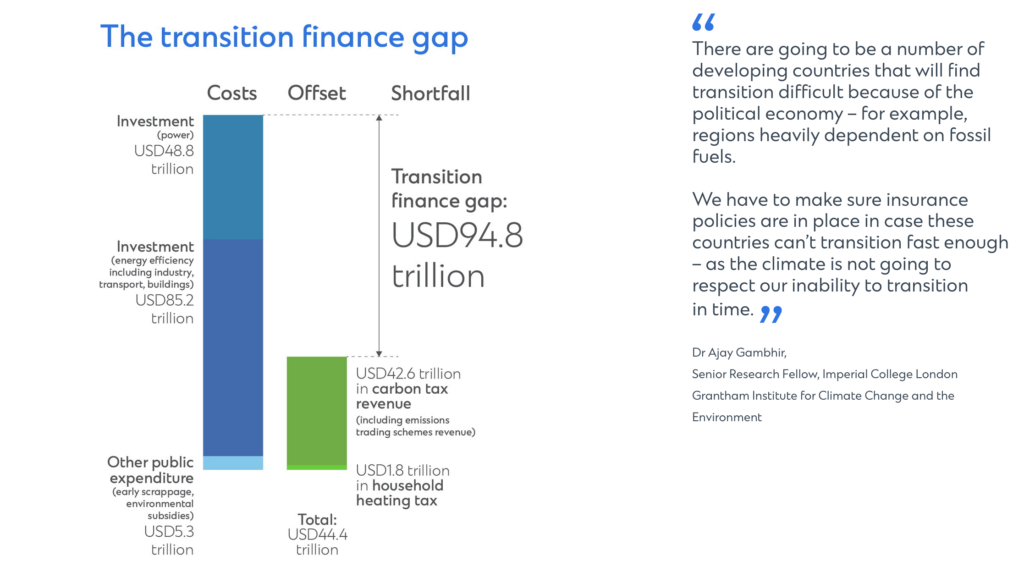Most people have never heard of the Glasgow Financial Alliance for Net Zero (GFANZ). Conveniently, GFANZ has remained absent from the mainstream media climate change dialogue. Yet, the United Nations-backed alliance is the world's most extensive collaboration of financial institutions aggressively forcing the global economy to transition to "net zero greenhouse gas emissions."
Launched in April 2021 by UN Special Envoy on Climate Action and Finance Mark Carney, US Special Presidential Envoy for Climate John Kerry, and US Treasury Secretary Janet Yellen, GFNAZ doesn't just aim to promote the move to net zero. Instead, as pointed out by Whitney Webb, the powerful career bankers behind GFANZ "have developed a plan to transform the global financial system by fusing with institutions like the World Bank and using them to further erode national sovereignty in the developing world."
The "green" plan pushed by GFANZ—which is part of the UN's 2030 Agenda for Sustainable Development (a wistful and sinister blueprint for global peace and prosperity)—is centered around the 17 Sustainable Development Goals (SDGs) spelled out by the UN. While "no poverty" and "zero hunger" are worthy of considerable thought, Webb aptly explains the reality of what GFANZ and its cohorts are up to, stating:
"Many of these goals sound nice in theory and paint a picture of an emergent global utopia—such as no poverty, no world hunger and reduced inequality. Yet, as is true with so much, the reality behind most—if not all—of the SDGs are policies cloaked in the language of utopia that—in practice—will only benefit the economic elite and entrench their power.
This can clearly be seen in fine print of the SDGs, as there is considerable emphasis on debt and on entrapping nation states (especially developing states) in debt as a means of forcing adoption of SDG-related policies. It is then little coincidence that many of the driving forces behind SDG-related policies, at the UN and elsewhere, are career bankers. Former executives at some of the most predatory financial institutions in the history of the world, from Goldman Sachs to Bank of America to Deutsche Bank, are among the top proponents and developers of SDG-related policies."
Along with Carney, GFANZ is co-chaired by Michael Bloomberg, the US billionaire and former mayor of New York City. Mary Schapiro, former SEC Chairman and Head of the Secretariat for the Task Force on Climate-related Financial Disclosures, serves as Vice Chair and Head of the GFANZ Secretariat. Covering the financial gamut, GFANZ has seven sector-specific alliances to "drive progress at the grassroots level to raise the ambition on net-zero commitments, increase engagement, and support their members' acceleration of their alignment journeys." Each alliance operates under the same goal—net zero emissions by 2050 or sooner.
[gallery columns="4" size="large" ids="45788,45789,45790,45791,45792,45793,45795"]
The various commitments cover all asset classes, including listed equities, fixed income, private equity, infrastructure, real estate, and mortgages. Net Zero Asset Managers initiative (NZAM), which follows the global takeover roadmap established by IEA, aims to "galvanize" the asset management industry to commit to a goal of net zero emissions. As part of the UN's "Race to Zero" campaign, the group's Founding Network Partners report a commitment "in line with the best available science on the impacts of climate change," pledging to cancel all new thermal coal projects immediately. Instead, the alliances will fund and support the push for solar and wind generation instead of fossil fuels and reduce oil demand "mainly through widespread adoption of electric vehicles and behaviour changes..."
Wasting no time, Race to Zero has mobilized a coalition of "leading net-zero initiatives." It has recruited leadership from businesses, cities, regions, and investors to drive the climate change agenda. As of September 2022, Race to Zero represents "11,309 non-State actors including 8,307 companies, 595 financial institutions, 1,136 cities, 52 states and regions, 1,125 educational institutions, and 65 healthcare institutions."
The Net Zero Banking Alliance (NZBA) currently includes 122 banks in 41 countries, with total assets of $72 trillion. It represents about 40% of global banking assets committed to aligning their lending and investment portfolios with net zero emissions by 2050 or sooner, using "robust, science-based guidelines." Interestingly, the often-mentioned "science-based guidelines" behind the global initiative are consistently not linked alongside the extreme and economy-crushing financial and investment directives.
 Screenshot / NZBA "Just in Time" Report
Screenshot / NZBA "Just in Time" Report
Interestingly, and offering a slight glimmer of hope, during a House Financial Services Committee hearing (see clip below), Rep. Rashida Tlaib (D-MI) pressed a group of CEOs from leading banks sitting before the investigatory panel. She asked them point blank if they would commit to stop funding new oil and gas projects. JP Morgan Chase CEO Jamie Dimon responded, "Absolutely not, that would be the road to hell for America."
With the COP27 Climate Change Summit now over and Joe Biden agreeing to pay climate reparations to developing nations—a move that could benefit China—clear communications surrounding what's in store under the guise of climate change is essential. Nonetheless, as with the COVID-19 pandemic, straightforward, transparent reporting related to the current global climate crisis is severely lacking. Tellingly, only one of the seventeen Sustainable Development Goals (SDG 13) deals specifically with climate. Just one. Considering the draconian measures that drove the COVID-19 pandemic, it is paramount to question the motives (think digital ID) of the 2030 Agenda and GFANZ. In a September 2022 article titled "Sustainable Debt Slavery," which focuses on just that, Webb and co-author Iain Davis ask:
"Are their interests truly aligned with "sustainable development" and improving the state of the world for regular people, as they now claim? Or do their interests lie where they always have, in a profit-driven economic model based on debt slavery and outright theft?"


